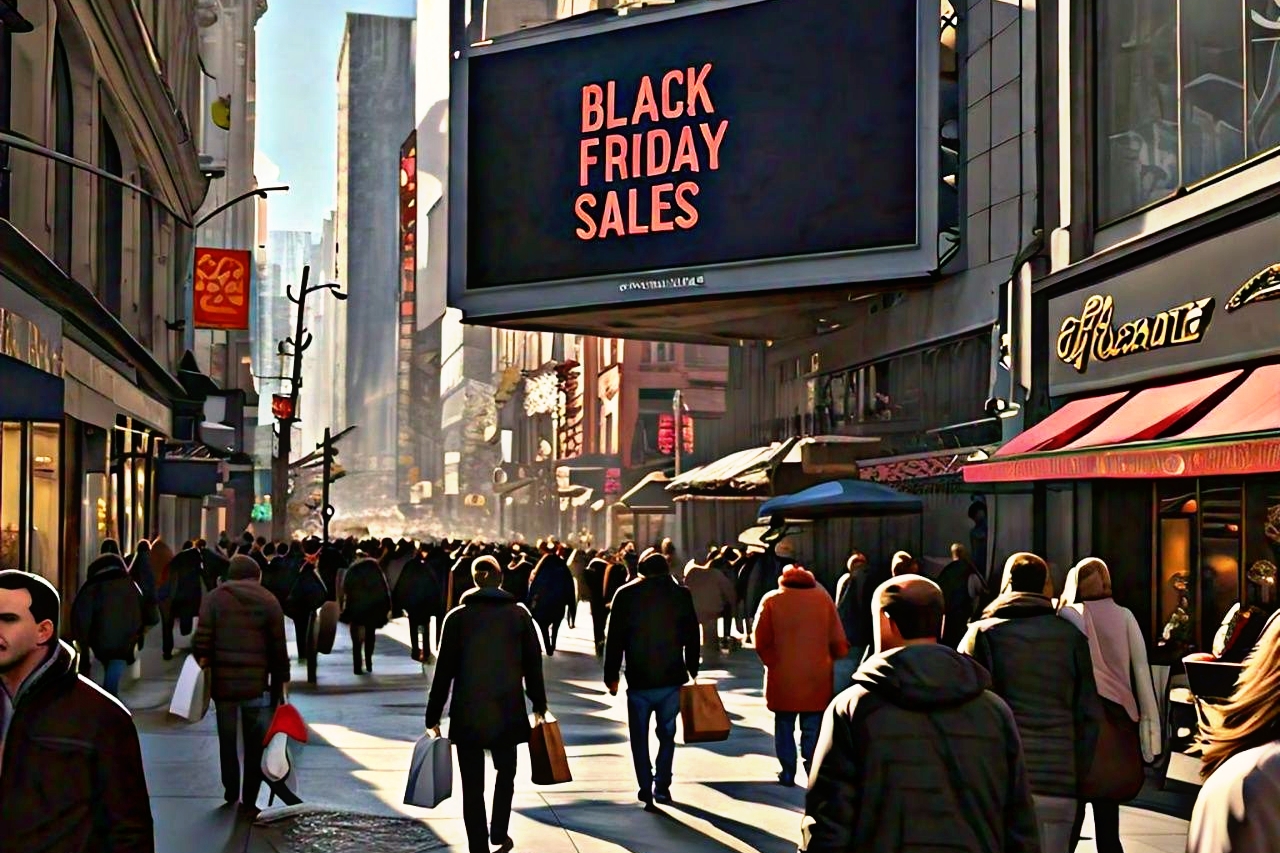The term Black Friday is instantly recognizable worldwide, synonymous with massive sales, doorbuster deals, and the onset of the holiday shopping season. While it’s widely associated with the frenzy of shoppers seeking bargains the day after Thanksgiving, many people wonder: Why is it called Black Friday?
This question opens the door to an intriguing exploration of history, culture, and economics. The phrase has evolved over time, carrying different meanings across contexts before cementing its association with retail. This article delves into the roots of Black Friday, why it’s called Black Friday, and how its significance has transformed over the decades.
The Origins of Black Friday: Why Is It Called Black Friday?
To understand why it is called Black Friday, we must journey back in time. The term did not originate in retail but in different contexts where the “black” connotation represented a notable or disruptive event. Here are some key historical milestones that contributed to its evolution:
1. Financial Panic of 1869
The first recorded use of “Black Friday” dates back to September 24, 1869. During this period, two Wall Street financiers, Jay Gould and James Fisk, attempted to corner the U.S. gold market. Their scheme caused gold prices to soar, leading to a market crash when the government intervened by releasing gold reserves.
The financial fallout was devastating for investors and farmers, who suffered significant losses. The event was dubbed “Black Friday” because of its disastrous impact on the economy.
While this incident explains why it was called Black Friday in a financial context, its connection to the shopping phenomenon was yet to come.
The Retail Connection: Why Is It Called Black Friday in Shopping?

The association of Black Friday with shopping and commerce developed later, primarily in the United States. The question of why it is called Black Friday in this context has a fascinating and somewhat contentious history.
2. Philadelphia’s Traffic Chaos in the 1950s
In the 1950s, the term Black Friday was used by police officers in Philadelphia to describe the day after Thanksgiving. Traditionally, this day marked the beginning of the holiday shopping season. However, it also brought heavy traffic, overcrowded sidewalks, and a surge of shoplifters taking advantage of the chaos.
Philadelphia law enforcement, overwhelmed by the mayhem, began calling the day “Black Friday.” For them, it wasn’t a term of celebration but rather a grim reference to the challenges they faced during this period.
3. Retailers’ Rebranding Efforts
Retailers, unhappy with the negative connotation of the term, sought to reframe it in a more positive light. By the late 1980s, they introduced a new explanation for why it is called Black Friday, focusing on financial prosperity rather than chaos.
According to this narrative, Black Friday marked the day when stores moved from operating “in the red” (indicating losses) to “in the black” (indicating profits). This shift symbolized the profitability of the holiday shopping season, making it a pivotal day for businesses.
This financial metaphor gained traction, and the term Black Friday became widely embraced as a celebration of retail success.
Why Is It Called Black Friday? The Modern Context
Today, why it is called Black Friday is primarily associated with retail, but its meaning has expanded globally and digitally. Let’s explore its current significance:
1. The Shopping Extravaganza
In the United States, Black Friday is regarded as the biggest shopping day of the year. Retailers offer significant discounts on a wide range of products, drawing massive crowds to stores and generating billions in revenue.
This phenomenon has grown beyond the U.S., with countries worldwide adopting Black Friday sales as a part of their retail calendar. The term has become a universal symbol of consumerism and holiday preparation.
2. The Rise of Cyber Black Friday
The digital revolution has transformed why it is called Black Friday in the online space. E-commerce platforms like Amazon and Walmart introduced online deals to compete with traditional brick-and-mortar stores.
This led to the rise of “Cyber Friday,” an extension of Black Friday into the virtual realm, where shoppers can access discounts without leaving their homes. The convenience and accessibility of online shopping have redefined Black Friday, making it a global phenomenon.
3. Black Friday Weekend and Beyond
The concept of Black Friday has expanded to include the entire weekend, culminating in Cyber Monday. Retailers use this extended shopping period to boost sales, further solidifying the day’s importance in the retail world.
Global Adoption: Why Is It Called Black Friday Worldwide?
The global adoption of Black Friday raises an interesting question: Why is it called Black Friday in countries where Thanksgiving is not celebrated?
1. Influence of American Culture
The globalization of American culture, fueled by the dominance of U.S.-based corporations and media, has introduced Black Friday to international markets. Retailers in countries like the UK, Canada, India, and Brazil have embraced the concept, offering Black Friday sales to attract shoppers.
2. The Appeal of Discounts
The universal appeal of discounts and promotions has helped Black Friday transcend cultural and geographical boundaries. While its origins are rooted in American traditions, the concept resonates with consumers worldwide.
3. Local Adaptations
Some countries have localized Black Friday to align with their cultural and retail calendars. For instance, in China, Singles’ Day (November 11) serves a similar purpose, while in Dubai, the concept has been incorporated into the annual shopping festival.
Criticism and Controversy: Why Is It Called Black Friday Despite Backlash?
While Black Friday is celebrated as a retail success, it has also faced criticism and controversy. Understanding why it is called Black Friday requires examining these aspects:
1. Consumerism and Materialism
Critics argue that Black Friday promotes excessive consumerism and materialism, encouraging people to prioritize shopping over other values. The frenzy surrounding sales often leads to impulsive purchases and unnecessary spending.
2. Environmental Impact
The environmental impact of Black Friday is another point of contention. The production, packaging, and shipping of goods during this period contribute to waste and pollution. Activists have called for more sustainable practices in retail.
3. Worker Exploitation
Retail employees often face long hours, stressful conditions, and minimal breaks during Black Friday sales. Advocates for workers’ rights have highlighted these issues, calling for better treatment of retail staff.
Despite these criticisms, the popularity of Black Friday continues to grow, underscoring its significance in modern retail.
Conclusion: Why Is It Called Black Friday? A Legacy of Evolution
The question of why it is called Black Friday has a complex and multifaceted answer. From its origins in financial crises to its transformation into a retail juggernaut, the term Black Friday reflects a fascinating journey through history, culture, and commerce.
Today, Black Friday represents much more than a single day of shopping—it symbolizes the start of the holiday season, the power of global retail, and the evolving dynamics of consumer behavior. As the tradition continues to adapt to new trends and technologies, the story of Black Friday remains a compelling chapter in the narrative of modern life.
So, why is it called Black Friday? The answer lies in its ability to transform and endure, making it one of the most iconic and celebrated phenomena in the world of retail.

